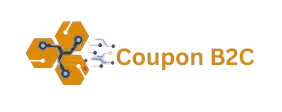Gene therapy is emerging as a transformative treatment, offering the potential to correct genetic faults at their source. This involves introducing, removing, or altering genetic material in a patient’s cells to treat or prevent disease. While still in its early stages for many conditions, gene therapy has shown promising results for inherited disorders like cystic fibrosis, spinal muscular atrophy, and certain types of blindness. Doctors are cautiously optimistic about its long-term potential to cure diseases that were once considered incurable, opening new frontiers in medical intervention and reshaping how we approach genetic ailments.
Minimally Invasive Procedures: Less Trauma, Faster Recovery
The evolution of treatment heavily favors minimally invasive overseas data procedures, leading to less patient trauma and faster recovery times. Techniques like laparoscopy, endoscopy, and robotic-assisted operations involve smaller incisions, reducing pain, blood loss, and the risk of infection. This approach allows doctors to perform complex surgeries with greater precision and for patients to return home sooner, often with less scarring. The continuous innovation in surgical tools and techniques underscores a commitment to improving the patient experience and minimizing the impact of necessary medical interventions.
Regenerative Medicine: Repairing and Replacing Tissues
>Regenerative medicine is a cutting-edge field of treatment honeymoon cut short by shark attack focused on repairing, replacing, or regenerating damaged cells, tissues, and organs. This includes stem cell therapies, tissue engineering, and the use of biomaterials to stimulate the body’s natural healing processes. Doctors are exploring its potential for conditions ranging from heart disease and spinal cord injuries to osteoarthritis and organ failure. While many applications are still experimental, regenerative medicine holds the promise of truly restoring function. Moving beyond symptom management to fundamental biological repair and offering new hope for chronic conditions.
Nanotechnology in Medicine: Tiny Tools, Big Impact
Nanotechnology in medicine promises tiny tools with a big impact on treatment delivery and diagnostics. At the nanoscale, doctors are developing highly targeted drug delivery systems that can precisely target diseased cells while sparing healthy ones, reducing side effects. Nanoparticles can also be used for advanced imaging or to create highly sensitive diagnostic tests for early disease detection. This innovative field is still rapidly developing, but its potential to revolutionize how we diagnose, treat. And monitor illnesses is immense, offering unprecedented precision in medical interventions.
